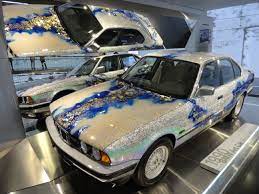In a world where cars are becoming more than just transportation, customizing vehicles has become a popular way for owners to express themselves. As this trend continues to grow, understanding how to accurately appraise these customized rides is crucial, a custom car appraisal provides a detailed evaluation of the unique features and value of your specialized vehicle. In this article, we’ll break down the basics of custom car appraisal, exploring what factors contribute to the value of these one-of-a-kind vehicles.
Understanding the Essence of Custom Cars
Custom cars go beyond the conventional, challenging the norms of mass-produced automobiles. Owners invest time, effort, and creativity to transform their vehicles into distinctive masterpieces. Whether it’s a classic restoration, a modified engine, or a unique paint job, each customization adds a layer of individuality that sets the car apart from the rest.
The Challenge of Appraising Custom Cars
Unlike their factory-produced counterparts, custom cars pose a unique challenge when it comes to appraisal. Traditional appraisal methods often fall short in capturing the true value of these customized vehicles. The value is not only determined by the make, model, and year but also by the craftsmanship, rarity, and uniqueness of the modifications.
Key Factors in Custom Car Appraisal
- Craftsmanship and Quality of Modifications
The skill and precision invested in the customization of a vehicle play a pivotal role in its appraisal. High-quality modifications, whether it’s a custom interior, unique bodywork, or performance enhancements, contribute positively to the overall value.
- Rarity and Uniqueness
The rarity of specific modifications or features can significantly impact the appraisal value. Limited edition customizations, bespoke detailing, and unique design elements can make a custom car stand out in the market.
- Historical Significance
Some custom cars carry historical significance, either due to their association with a particular era, event, or influential figure. This historical context can elevate the appraisal value, especially among automotive enthusiasts and collectors.
- Market Trends and Demand
The value of custom cars is also influenced by market trends and demand. Popular styles and modifications at a given time may have a direct impact on the appraisal value. Staying attuned to current automotive trends can help owners and appraisers alike.
Conclusion
In a world where conformity often takes precedence, custom cars stand as a testament to individuality and creativity. The art of custom car appraisal is a dynamic and evolving process that goes beyond traditional valuation methods. Owners and appraisers alike must navigate the intricate landscape of automotive personalization to assign accurate values to these bespoke masterpieces. As the world of custom cars continues to flourish, so too will the importance of a nuanced and specialized approach to appraisal, ensuring that each custom creation receives the recognition it deserves on the road and in the market.












